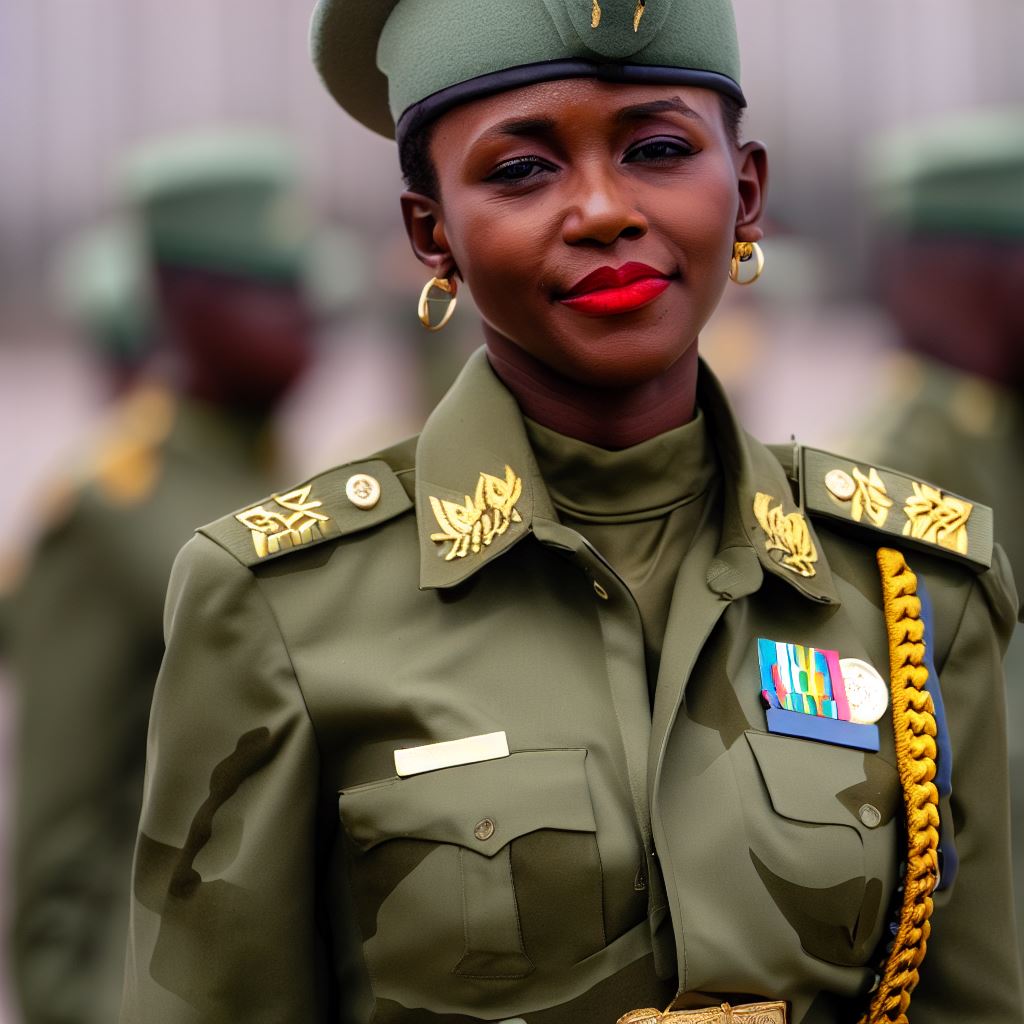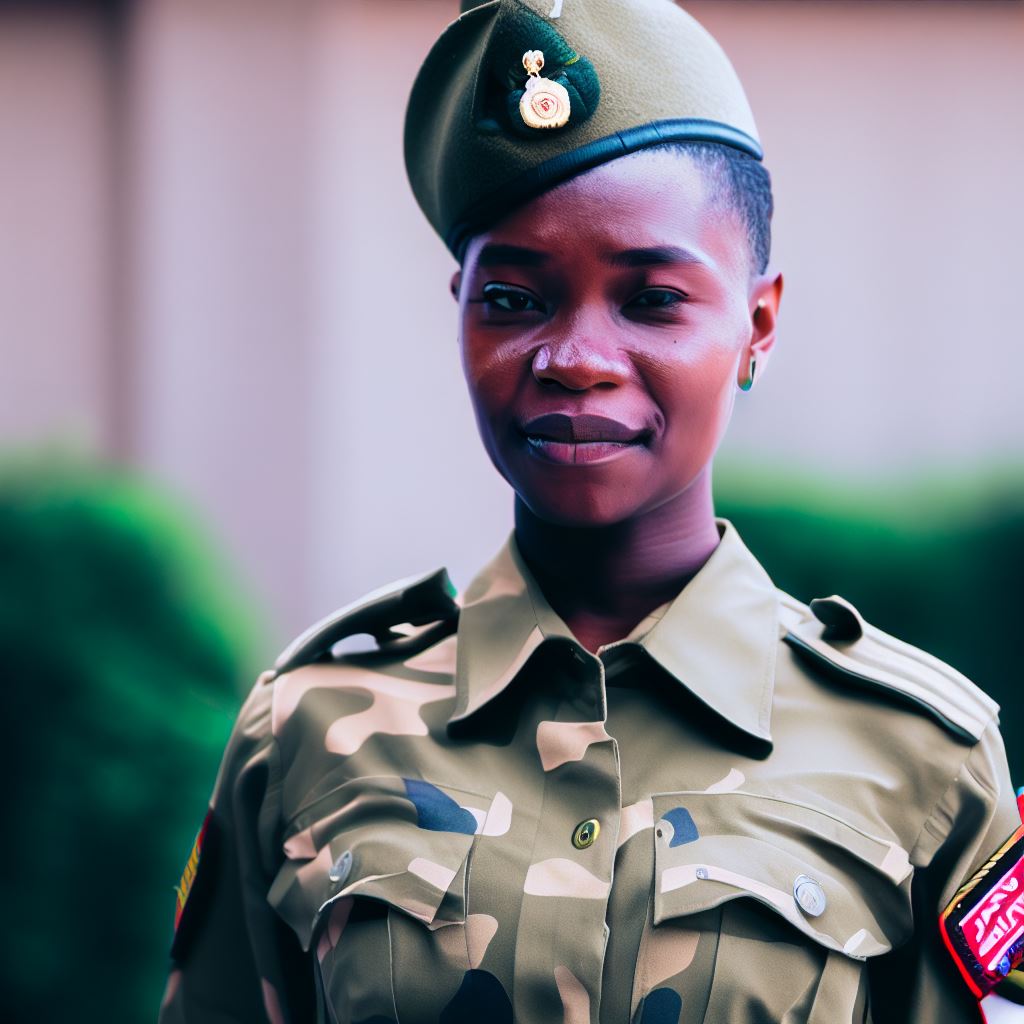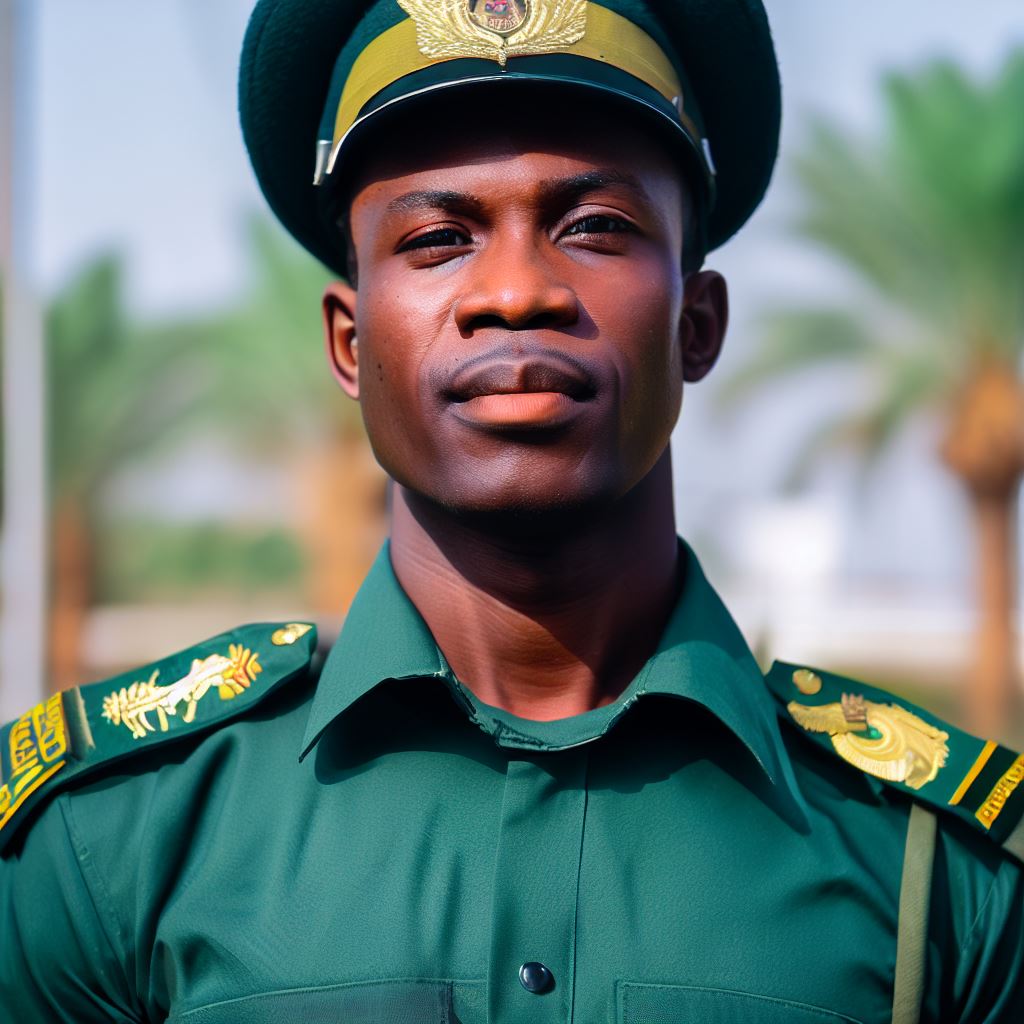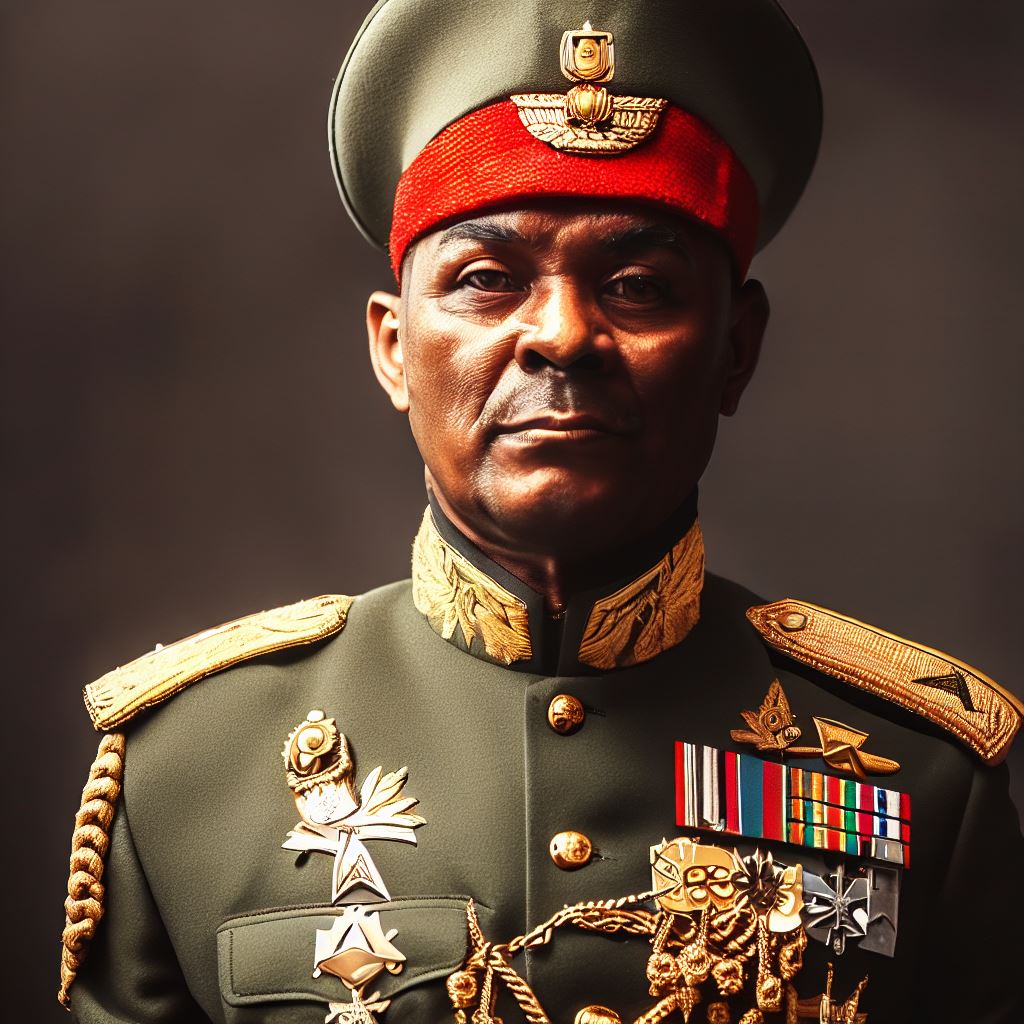Introduction
In this post, we will discuss the role of Nigerian Military Officers in Peacekeeping Missions, exploring their importance and Nigeria’s involvement in such missions.
Peacekeeping missions are operations carried out by the United Nations to maintain peace and security in conflict-ridden regions.
Nigerian military officers play a crucial role in peacekeeping missions, providing security, stability, and humanitarian aid.
Over the years, Nigeria has actively participated in peacekeeping missions, demonstrating its commitment to global peace and security.
Nigeria’s involvement in peacekeeping missions dates back to its contribution to the United Nations mission in Congo in the 1960s.
Since then, Nigerian military officers have been deployed to various conflict zones, including Sierra Leone, Liberia, Sudan, and more recently, Mali and the Democratic Republic of Congo.
Nigerian military officers are known for their professionalism, discipline, and ability to adapt to different cultural contexts.
In peacekeeping missions, they engage in tasks such as disarming combatants, facilitating dialogue, protecting civilians, and providing medical assistance.
These officers have been instrumental in restoring peace, preventing violence, and rebuilding war-torn communities.
In fact, Nigerian military officers play a significant role in peacekeeping missions, contributing to global peace and security.
Their involvement showcases Nigeria’s commitment to international cooperation and its desire to promote peace worldwide.
Historical Background of Nigerian Military Involvement in Peacekeeping
A. Early participation in peacekeeping missions
Since gaining independence in 1960, Nigeria has actively participated in peacekeeping missions around the world.
B. Key peacekeeping missions Nigeria has been a part of
Nigeria has been involved in various important peacekeeping missions, including:
- The Congo Crisis (1960-1964): Nigerian troops were among the first to be deployed to assist the United Nations forces in restoring peace in Congo.
- Ethiopia-Eritrea conflict (2000-2008): Nigerian military officers played a crucial role in monitoring the ceasefire agreement and ensuring peace between the two countries.
- Darfur conflict (2004-present): Nigerian peacekeepers have been actively involved in the African Union-United Nations Hybrid Operation in Darfur (UNAMID), contributing to the protection of civilians and stabilizing the region.
C. Impact of Nigerian military officers in previous missions
The participation of Nigerian military officers in peacekeeping missions has had a significant impact:
- Enhancing Nigeria’s international reputation: Nigeria’s involvement in peacekeeping has solidified its position as a responsible global player and a key contributor to international peace and security.
- Promoting regional stability: By participating in peacekeeping missions, Nigerian military officers have helped maintain stability in conflict-prone regions, such as the Democratic Republic of Congo and Darfur.
- Improving professional skills: Peacekeeping missions provide Nigerian military officers with valuable training and exposure to different operational environments, enhancing their professional skills and capabilities.
- Humanitarian assistance: Nigerian military officers have actively engaged in providing humanitarian assistance to affected communities during peacekeeping missions, fostering goodwill and support for Nigeria’s efforts in conflict resolution.
- Conflict resolution and prevention: Nigerian military officers’ involvement in peacekeeping missions demonstrates Nigeria’s commitment to conflict resolution and prevention, both domestically and internationally.
Overall, Nigerian military officers have played a crucial role in peacekeeping missions, contributing to global peace and security, promoting regional stability, and enhancing Nigeria’s international reputation.
Their participation has not only improved their professional skills but also demonstrated Nigeria’s commitment to conflict resolution and humanitarian assistance.
Nigeria’s continued engagement in peacekeeping missions reflects the country’s dedication to maintaining global peace and fostering diplomatic relations with nations around the world.
Read: How to Join the Nigerian Army as an Officer
Role of Nigerian Military Officers in Peacekeeping Missions
A. Functions and responsibilities of Nigerian military officers
- Nigerian military officers play crucial roles in peacekeeping missions around the world.
- They are responsible for maintaining peace, protecting civilians, and promoting stability.
- Officers provide leadership, coordinate with local authorities, and facilitate conflict resolution.
- They conduct patrols, secure areas, and implement disarmament and demobilization processes.
- Nigerian officers also help in organizing and overseeing elections and rebuilding institutions.
B. Training and preparation undergone by officers for peacekeeping
- Before deployment, Nigerian military officers undergo rigorous training to prepare for peacekeeping.
- They receive specialized instruction on conflict resolution, human rights, and rules of engagement.
- The training enhances their skills in communication, negotiation, and cultural sensitivity.
- Officers also learn about the specific region they will be serving in, including its history and geography.
- They participate in simulated exercises to simulate real-life peacekeeping scenarios.
C. How Nigerian officers contribute to maintaining peace and stability
- Nigerian military officers contribute to peace and stability by enforcing ceasefire agreements.
- They work alongside local authorities to strengthen security and prevent conflicts from escalating.
- Officers assist in the disarmament, demobilization, and reintegration of former combatants.
- They provide humanitarian aid, such as medical assistance and support to displaced persons.
- Nigerian officers also promote respect for human rights and engage in community engagement initiatives.
In essence, Nigerian military officers play vital roles in peacekeeping missions. Through their functions and responsibilities, they contribute to maintaining peace and stability.
Their training and preparation equip them with the necessary skills to effectively carry out their duties.
By enforcing ceasefire agreements, providing humanitarian aid, and promoting respect for human rights, Nigerian officers make significant contributions to peacekeeping efforts worldwide.
Read: Retirement from the Military in Nigeria: What’s Next?
Challenges Faced by Nigerian Military Officers in Peacekeeping Missions
A. Security risks and threats faced on the ground
- Inadequate intelligence information increases the vulnerability of Nigerian military officers to security risks.
- Operating in hostile environments exposes Nigerian military officers to the constant threat of ambushes and attacks.
- Lack of proper equipment and resources hampers the ability of Nigerian military officers to effectively counter security threats.
- Limited cooperation from local authorities and communities obstructs the efforts of Nigerian military officers in maintaining security.
- The presence of armed insurgent groups poses significant security challenges for Nigerian military officers in peacekeeping missions.
- Weak or failing infrastructure in conflict zones further complicates security operations for Nigerian military officers.
B. Language and cultural barriers
- Different languages spoken in peacekeeping mission areas make communication difficult for Nigerian military officers.
- Lack of cultural awareness and understanding can result in misunderstandings and conflicts with local populations.
- Religious and traditional beliefs in host communities can create barriers for effective collaboration between Nigerian military officers and locals.
- Cultural differences in social norms and practices may hinder the establishment of trust and rapport with local communities.
- Misinterpretation of gestures and body language due to cultural differences can lead to unintentional misunderstandings.
C. Psychological and emotional challenges faced by officers
- Witnessing the aftermath of violence and destruction can have a profound psychological impact on Nigerian military officers.
- The constant exposure to high-stress situations in peacekeeping missions can lead to mental fatigue and emotional burnout.
- Separation from families and loved ones for extended periods creates emotional strain for Nigerian military officers.
- The loss of colleagues during peacekeeping missions can result in feelings of grief and survivor’s guilt.
- Inadequate psychological support and counseling services can further exacerbate the mental health challenges faced by officers.
In short, Nigerian military officers face various challenges in peacekeeping missions. The security risks and threats they encounter on the ground require strong intelligence support and adequate resources.
Overcoming language and cultural barriers is crucial for effective communication and collaboration with local populations.
Additionally, addressing the psychological and emotional challenges faced by officers is essential to ensure their well-being during and after peacekeeping missions.
Proper training, resources, and support systems are necessary to mitigate these challenges and enable Nigerian military officers to carry out their peacekeeping duties effectively.
Read: Technology in Nigeria’s Military: Officer Insights

Success Stories and Achievements of Nigerian Military Officers in Peacekeeping
A. Notable achievements and contributions in specific missions
- Nigerian military officers played a vital role in maintaining peace and stability in Liberia.
- They successfully facilitated the disarmament, demobilization, and reintegration process in Sierra Leone.
- Nigerian soldiers effectively addressed the challenges of extremism and insurgency in Mali.
- They played a leading role in restoring peace and aiding the democratic transition in Sudan.
- Nigerian troops have made significant contributions to the fight against terrorism in Somalia.
B. Recognition and awards received by Nigerian military officers
- Nigerian military officers have received numerous international awards for their remarkable contributions in peacekeeping missions.
- They have been commended for their bravery, professionalism, and commitment to maintaining peace.
- Nigerian military officers have been honored with the United Nations Peacekeeping Medal for their exemplary service.
- Their dedication and selflessness have been recognized by various countries and organizations across the globe.
- Nigerian peacekeepers have been praised for their discipline, integrity, and exceptional leadership skills.
C. Positive impact on Nigeria’s international reputation
- Nigeria’s active participation in peacekeeping missions has enhanced its international standing and reputation.
- The country is considered a reliable partner in promoting global peace and security.
- Nigerian military officers have demonstrated their capabilities and professionalism on various international platforms.
- Their contributions have earned Nigeria respect and admiration from the international community.
- Nigeria’s involvement in peacekeeping missions has strengthened its diplomatic relations with other countries.
In review, Nigerian military officers have achieved remarkable success and made significant contributions in peacekeeping missions around the world.
Through their bravery, professionalism, and dedication, they have played a crucial role in maintaining peace, resolving conflicts, and aiding socio-political transitions in war-torn countries.
Their notable achievements have been recognized internationally, and Nigeria’s active engagement in peacekeeping has positively impacted its reputation on the global stage.
Read: Nigerian Air Force Officers: A Career Overview
Criticisms and Controversies Surrounding Nigerian Military Officers in Peacekeeping
A. Allegations of misconduct or inappropriate behavior
Nigerian military officers deployed in peacekeeping missions have faced numerous allegations of misconduct and inappropriate behavior.
There have been reports of sexual exploitation and abuse, including cases of rape and harassment by Nigerian soldiers.
Such allegations tarnish the reputation of the Nigerian military and undermine the credibility of their peacekeeping efforts.
It is crucial for the Nigerian government and military authorities to thoroughly investigate these allegations and take appropriate disciplinary actions.
B. Lack of adequate resources and support for officers
Nigerian military officers participating in peacekeeping missions often face a lack of adequate resources and support.
Insufficient funding allocated for peacekeeping operations hampers the effectiveness of Nigerian soldiers on the ground.
Lack of proper equipment, including transportation, communication devices, and protective gear, poses a significant risk to their safety.
Addressing these resource challenges and providing necessary support will contribute to better performance and increased success in peacekeeping missions.
C. Addressing and learning from past controversies
In order to improve the reputation of Nigerian military officers in peacekeeping missions, it is essential to address past controversies.
Establishing a transparent and accountable system will help prevent future instances of misconduct and inappropriate behavior.
Training programs should be implemented to educate officers about human rights, gender sensitivity, and the ethical responsibilities of peacekeepers.
Lessons need to be learned from previous controversies and mistakes, and policy changes should be made accordingly.
Regular monitoring by both Nigerian authorities and international organizations can help ensure adherence to standards of conduct in peacekeeping missions.
Critics and controversies pose significant challenges in addressing Nigerian military officers’ roles in peacekeeping missions.
Allegations of misconduct, inadequate resources, and the need for learning from past controversies must be taken seriously.
By addressing these issues, Nigeria can enhance the effectiveness and professionalism of its military officers in peacekeeping operations, contributing to sustainable peace and security worldwide.
Uncover the Details: Retirement from the Military in Nigeria: What’s Next?
Future Prospects and Importance of Nigerian Military Officers in Peacekeeping
A. Nigeria’s commitment to peacekeeping efforts
- Nigeria has a long-standing commitment to participating in peacekeeping missions around the world.
- The country has a history of deploying military officers to areas affected by conflict.
- This commitment showcases Nigeria’s willingness to play an active role in promoting global peace and security.
- Nigerian military officers have gained recognition for their professionalism and dedication in peacekeeping missions.
B. Potential areas for improvement and growth
- One area where Nigerian military officers can improve is in the area of training and equipment.
- Investing in modern military technologies and providing advanced training will enhance their effectiveness in peacekeeping missions.
- Improving logistics and communication systems is crucial for efficient coordination and execution of peacekeeping tasks.
- Collaboration with international partners can enable Nigerian military officers to learn from others’ experiences and adopt best practices.
C. Importance of continuing to contribute to global peacekeeping initiatives
- Nigeria’s participation in peacekeeping missions is crucial for maintaining international peace and security.
- By actively engaging in these initiatives, Nigerian military officers contribute to the stability and progress of war-torn regions.
- Peacekeeping missions provide an opportunity for Nigerian military officers to gain valuable experience in complex operational environments.
- These experiences contribute to the professional development and growth of Nigerian military officers.
- Furthermore, Nigeria’s involvement in peacekeeping missions enhances its diplomatic standing and reputation on the global stage.
- The promotion of global peace and security aligns with Nigeria’s foreign policy objectives.
- By participating in peacekeeping missions, Nigeria demonstrates its commitment to international cooperation and multilateralism.
- It also strengthens its position as a regional power and enhances its influence in African affairs.
In a nutshell, the future prospects for Nigerian military officers in peacekeeping missions are promising.
Nigeria’s commitment to peacekeeping efforts highlights its dedication to maintaining global peace and security.
The country has the potential to improve through investments in training, equipment, and infrastructure.
By continuing to contribute to global peacekeeping initiatives, Nigerian military officers enhance their professional growth and contribute to the stability and progress of conflict-affected regions.
Their participation also strengthens Nigeria’s diplomatic standing and its role as a regional power.
Overall, Nigerian military officers play a crucial role in peacekeeping and have a significant impact on the international stage.
Conclusion
Nigerian military officers play a crucial role in peacekeeping missions, contributing to global efforts in maintaining peace and stability.
It is essential to acknowledge and appreciate the selfless dedication and sacrifices made by Nigerian military officers in peacekeeping operations.
Both the Nigerian government and the international community must actively recognize and support their commendable efforts.
As Nigeria continues to be a major contributor to peacekeeping missions, it is vital that the government strengthens its commitment to adequately equip and train its military personnel.
Foster international partnerships and collaborations to boost global peacekeeping efforts’ effectiveness.
By collectively appreciating and supporting Nigerian military officers, we can strive towards a more peaceful and secure world.




